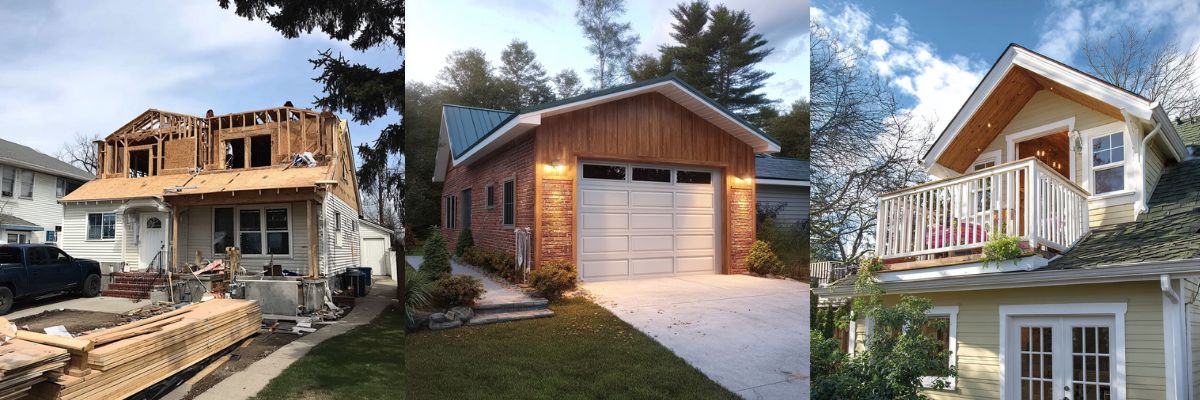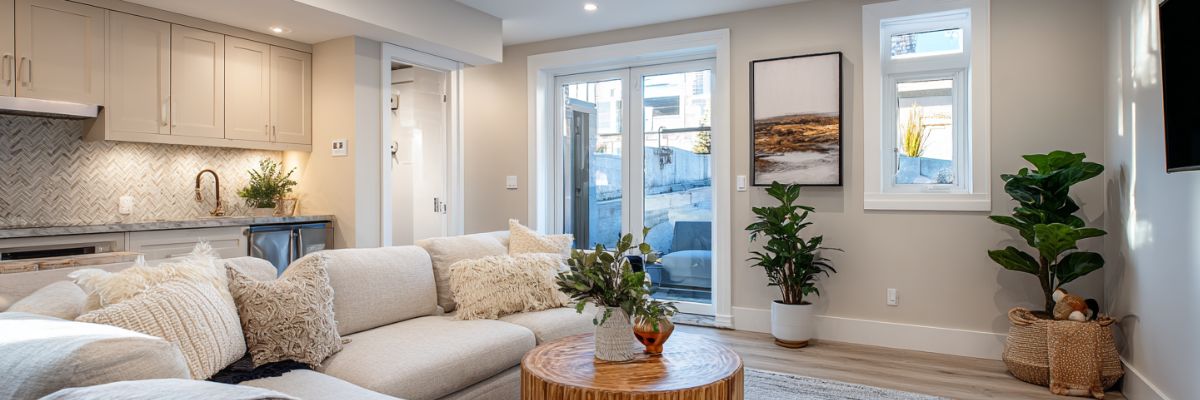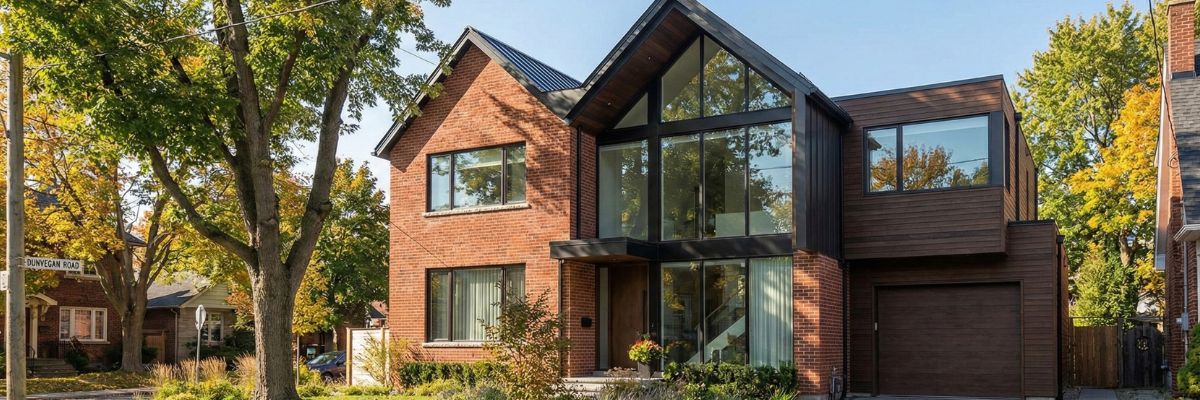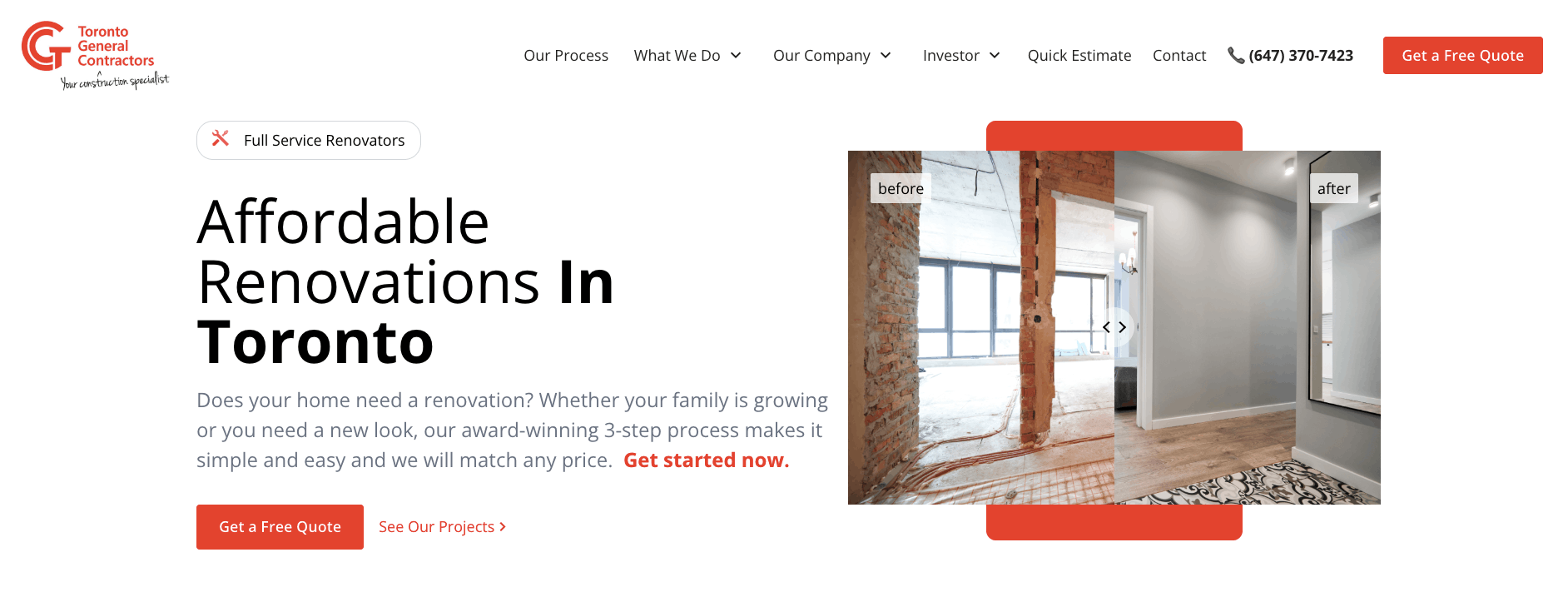Do I Need Permits For a Home Addition In Toronto?
Yes, in Toronto you generally need a building permit for most home additions. This includes second-story additions, rear or side extensions, sunrooms, attached garages, and other similar expansions.
A permit ensures that your project complies with the Ontario Building Code, local zoning bylaws, and safety regulations. Starting April 1, 2025, all permit applications must follow the updated 2024 Ontario Building Code. Required documentation includes site plans, floor plans, building elevations, and energy compliance forms.
For smaller additions under 100 square meters, a faster permit review process may be available. Ignoring these requirements can lead to fines, stop-work orders, or even the need to tear down unpermitted construction.
Keep reading to learn more about the requirments for building a home addition in Toronto.

Types of Additions That Require Permits
In Toronto, most structural changes to a residential home require a building permit. This includes adding a new story, expanding your home into the backyard or side yard, or building out a sunroom or garage. Even major interior renovations that impact load-bearing walls or alter the home's structure will usually require approval. Any project that increases the total square footage of your home or modifies its foundation, framing, or building envelope is almost certain to need a permit.
On the other hand, small cosmetic upgrades like painting, flooring replacement, or swapping out kitchen cabinets usually do not require a permit. If you are making surface-level changes without touching electrical, plumbing, or structural elements, you may be exempt. However, it is always a good idea to check with Toronto Building Services before starting any project to avoid surprises.
Understanding the 2024 Ontario Building Code
As of April 1, 2025, all building permit applications in Toronto must comply with the 2024 version of the Ontario Building Code. These changes reflect updated safety protocols, energy efficiency standards, and design requirements. This means homeowners and builders must now plan additions that include higher insulation values, improved HVAC and ventilation systems, and stronger fire safety features.
The 2024 Code also introduces updated structural standards to account for modern materials and construction techniques. If your home addition impacts load-bearing walls, stairs, or rooflines, your designs must reflect these changes. This may affect your layout, ceiling heights, and how mechanical systems are installed.
Submitting complete and accurate documentation is essential for approval. This includes detailed site plans that show how your addition fits on the lot, architectural floor plans that illustrate the new space, building elevations to depict exterior changes, and mechanical layouts if you are adding new HVAC systems or energy-saving upgrades. Energy compliance forms are also required under the new code.
Why Permits Matter for Home Additions
Building permits play a vital role in protecting both homeowners and the public. They ensure your addition is structurally sound, safe, and legally compliant. Without a permit, you run the risk of building something that violates zoning rules, exceeds allowable floor space, or fails to meet essential safety standards. These problems can lead to significant legal and financial consequences down the road, particularly if you plan to sell or refinance your home.
Permits also trigger inspections at various stages of construction, which helps catch any potential code violations early. This protects you from future liability, helps with insurance coverage, and gives buyers confidence that the addition was properly built.
The Permit Application Process in Toronto
Applying for a home addition permit in Toronto can now be done entirely online through the city's e-permitting portal. This digital system allows you to upload all documents, track the status of your application, and communicate directly with city reviewers. For many homeowners and builders, this system speeds up the process compared to older, paper-based applications.
Permit review timelines vary based on the complexity of your project. Smaller additions under 100 square meters are typically reviewed within 10 to 15 business days. Larger additions may take 20 to 30 business days or more. If your proposal does not comply with existing zoning regulations, you may need additional approvals from the Committee of Adjustment, which can extend the process by several weeks or even months.
For example, if your addition is too close to the property line, too tall, or exceeds floor space limits, you will likely need a minor variance. This involves submitting your design for public review, attending a hearing, and getting formal approval before a permit can be issued. It’s wise to account for this additional step when planning your timeline.
Costs and Fees Associated with Permits
Permit fees in Toronto are based on both a base fee and a per-square-meter charge depending on the size and scope of the project. As of 2025, the base fee is typically around $206.53. For residential additions, you can expect to pay approximately $18.74 per square meter of new floor area. So for a 50 square meter addition, your total permit cost could fall in the range of $1,135.
In some cases, additional fees may apply if your project involves plumbing, HVAC upgrades, or demolition of existing structures. Development charges are generally not applied to single-home additions, but larger multi-unit conversions or change-of-use projects may be subject to them.
Besides city fees, you should also budget for professional design costs. Most permit applications require stamped drawings prepared by an architect, structural engineer, or designer licensed with the Ministry of Municipal Affairs and Housing. These professionals ensure that your plans meet all code and zoning requirements.
What Happens If You Build Without a Permit?
Building without a permit can lead to serious consequences. The city can issue a stop-work order, which halts all construction until a valid permit is obtained. You may also be fined, and in some cases, required to tear down unauthorized work at your own expense. The penalties for non-compliance can range from $1,000 to $25,000 for individuals and up to $50,000 for corporations.
Moreover, unpermitted work can void your home insurance policy. If a fire or structural issue occurs in an unpermitted space, your insurer may deny coverage, leaving you responsible for the full cost of repairs or liability. When you try to sell your home, any buyer’s inspection will likely uncover the issue, delaying or derailing the transaction.
How to Ensure a Smooth Permit Process
To avoid setbacks and delays, it’s important to begin your project with a clear understanding of Toronto’s permit process. The first step is to confirm your zoning designation and what type of addition is permitted on your lot. You can do this by consulting the City of Toronto's zoning map or speaking with a city planner.
Next, work with a qualified designer or contractor who understands local building codes. They can prepare accurate drawings and submit a complete application package, which significantly increases your chances of a fast approval. Submitting incomplete or inaccurate documents is one of the main reasons applications are delayed.
Throughout the review period, monitor your application status using the city’s digital portal. Respond promptly to any requests for revisions or clarifications from city staff. Once your permit is approved, make sure to book inspections at required stages of construction to maintain compliance and finalize your permit.
Final Thoughts
In Toronto, a building permit is required for nearly all significant home additions. Whether you are adding a second story, expanding your main floor, building a garage, or enclosing a sunroom, you must ensure your plans meet both zoning bylaws and building code requirements. As of 2025, new applications must follow the updated 2024 Ontario Building Code, which introduces modern standards for safety, energy use, and construction quality.
Taking the time to obtain a permit is not just a legal obligation - it is a smart way to protect your investment, avoid fines, and ensure your home remains safe and insurable. With the right professionals and a clear plan, the process can be straightforward and rewarding.
Planning a home addition in Toronto? Contact Toronto General Contractors today for expert design, permitting, and construction services. Our team guides you through every step, ensuring your addition meets code, budget, and your vision.



.jpg)



.jpg)

.jpg)
